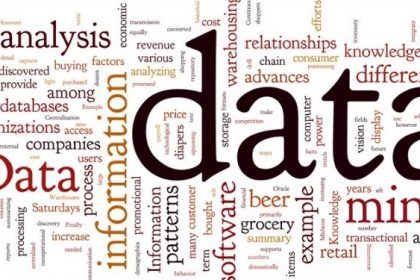
Happy International Women’s Day dear ladies—without you our lives would be so much harder, complicated, boring and filled with more issues than we could handle.
At times, it seems that you process information so much better than us men and use it in the most outstanding way when you manage to create order out of chaos. And for that and many other great things that you bring into our lives, thank you!
Speaking of information, what keeps me up at night are the issues my clients are facing when it comes to it. By now you already know that we at Gloobus deal with data in the most diverse ways and it’s out mission to connect and make sense of the world’s data—we’re no Google, but we certainly do our part.
As most of our clients are from the insurance, hospitality, travel and health verticals, I’m quite familiar with the issues that are common for them—and I’ll share some of the more obvious ones below, as I’m quite positive you’ll identify some you’ve also experienced.
I no particular order, the two most common issues related to data in the above mentioned sectors I’ve most often came across are:
1. Duplicates and misspellings
It can happen that over the course of the years your employees add clients or patients several times in your system, and this is an issue especially if you have contacts with the same name without any way of validating if they are indeed unique or not.
Usually this takes a lot of manual verification, but more often than not this doesn’t solve the issue. We’ve seen cases in which a former customer’s card was charged because he had the exact same name and city as a new client and the operator thought it was the same person. Or in other cases, a patient’s name was wrongfully added and the insurance claim was refused for this particular reason. Imagine the embarrassment and hassle to sort this out. And in the case of healthcare, a misspelling error can (and probably will) impact someone’s life. And that is simply unacceptable in 2017.
2. Different meaning for data for different stakeholders
Especially when dealing with different providers and entities, data marked the same can have a totally different meaning, even if the metadata seems to be correct. For example, in one report that was sent from a broker to the mother company using different data systems, the term ROI messed up the entire reporting workflow because of a mapping error: In one system, ROI was used (as most people use it) as short for Return on Investment (calculated based on customer acquisition cost), expressed as percentage. In the other system, ROI was used as Rate of Interest (charged on overdue), also expressed as percentage.
Now, you can imagine that this is bad—but not as bad when it comes to someone’s health or life. Thankfully, in the past few years healthcare providers take extra care when it comes to patients, yet a lot of EHR (Electronic Health Record) software vendors choose to format their data without a strict, imposed hierarchy or a sense of future-proofing it for those that come after them.
As you can see, I’m quite passionate about data and solving problems that arise with it – and I would love to talk to you about how Gloobus can help solve your data problems. I’ll be in Berlin for ITB 2017 starting today, so feel free to hit me up via LinkedIn and I’ll gladly come to your booth or office for a chat and demo of GSB, our real-time data exchange system.
